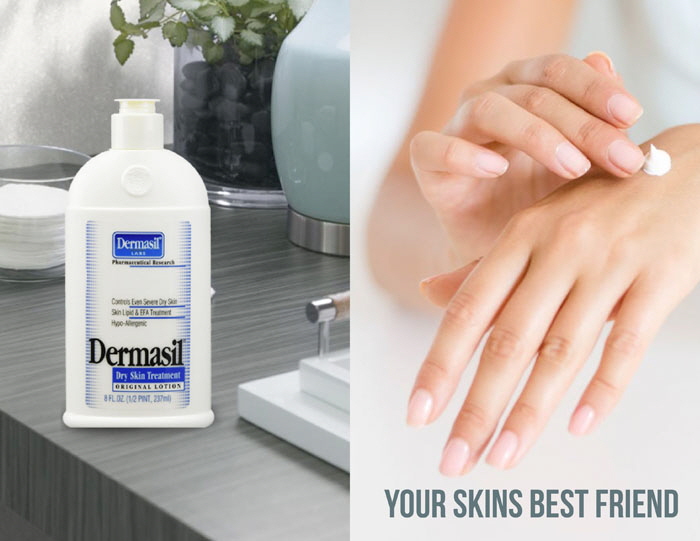|
|
 |
Repeated cleansing removes the skin's natural oil layer. This allows evaporation of the skin's water, which, in turn, leaves the very substance of the skin dry. In other words, water and bathing are extremely drying to the skin. As a matter of fact, xerosis is only a product of recent years, because people never used to take as many baths and showers as they do now. And if they only took one or two baths per week, as many of them did, people had a chance to re-accumulate natural body oils between baths.
When the skin dries out, the dead top layer becomes stiff, and on bending, actually cracks. This cracking phenomenon causes fissures down into the depth of the skin which then becomes irritated, inflamed and very itchy.
This problem is by no means confined to one age group or sex. It is found in young children, as well as middle-aged and elderly adults. Even teenagers can have dry, xerotic skin on the non-oily parts of their bodies. Generally, however, the older you are, the worse the tendency for dry skin.
There are many contributing factors to xerosis besides the season of the year, excess bathing and age. The second most common cause is the usage of harsh antibacterial soaps. Soaps contributing to dry skin are Dial, Zest, Safeguard, Lifebouy, Irish Spring, Coast, Phase III, Ivory, Lava, Shield and all liquid soaps. While it may be true that Ivory Soap is 99.44% pure, it is also true that it is equally as drying. It is not generally advised.
What can you do about your extremely dry skin?
First of all, decrease your baths to a maximum of one every other day or less, if possible. Many patients decrease to one or two baths per week, spot bathing as necessary between baths. If you have a child with this problem, the same applies to him or her.
The whole principal of bathing and soap usage can be summed up by using The Three "Gets" of bathing: "Get in, Get clean, and Get out!"
 DO
NOT pour any bath oil into your bath water because of the
severe danger of slipping! Only use bath oils by pouring a
small amount into your hand and smoothing it on over the
already-wet skin you have just bathed. Then you just blot dry
with a towel to save most of the oil on the skin.
DO
NOT pour any bath oil into your bath water because of the
severe danger of slipping! Only use bath oils by pouring a
small amount into your hand and smoothing it on over the
already-wet skin you have just bathed. Then you just blot dry
with a towel to save most of the oil on the skin.
If your condition warrants it, a cream or lotion may be prescribed or recommended to calm the inflammation of your dry, irritated skin. We would recommend Dermasil
Use creams only in a single area - for widespread areas, the lotions work better. It needs to be applied often enough to keep your skin soft and moist.
